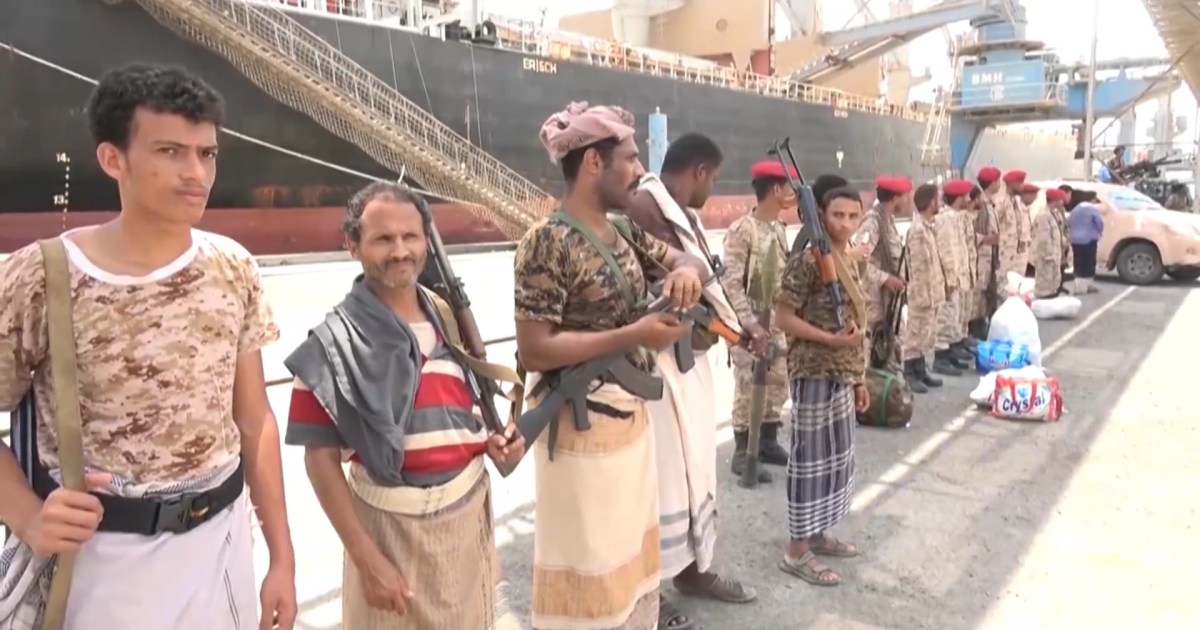The Central Bank of Yemen denied any corruption and money laundering operations that accompanied the implementation of the Saudi deposit provided to the Yemeni government in 2018. This comes after a UN report revealed that the Yemeni government was involved in money laundering and corruption that affected Yemenis' access to food supplies, and the report also warned that the UAE's support for the Transitional Council It undermines the legitimate government in Yemen.
The Central Bank of Yemen said in a statement that all the executive procedures it adopted were at a high level of transparency and that international foreign trade standards were applied to them.
He added that international and regional monitoring institutions participated in auditing these procedures.
The statement indicated that the United Nations team of experts visited the headquarters of the Central Bank in Aden at the invitation of its administration, and that the bank would respond to the expert team's report in detail after its official issuance.
A UN report by experts monitoring sanctions on Yemen accused the Yemeni government of engaging in money laundering and corruption practices that affected Yemenis' access to adequate food supplies, and the report accused the Houthis of exploiting state revenues in the war.
The report indicated that the legitimate Yemeni government lost strategic lands to the benefit of the Houthis and the UAE-backed Transitional Council.
The report pointed out that the Houthis transferred about two billion dollars of state funds in Yemen for the benefit of the war, adding that there is growing evidence that individuals or entities in Iran are providing the Houthis with large quantities of weapons.
The experts also documented several supply routes to the Houthis in the Arabian Sea using conventional sailing ships, in violation of a United Nations arms embargo, while Iran denies providing such support to the Houthis.
The report - which was submitted to the Security Council - said that Saudi Arabia deposited two billion dollars with the Central Bank of Yemen in January 2018 as part of a development and reconstruction program.
The aim was for this amount to finance a line of credit to purchase commodities such as rice, sugar, milk and flour to enhance food security and stabilize the prices of these commodities locally.
Corruption and war financing
However, the United Nations investigation found that the Central Bank of Yemen violated the rules of changing currencies, manipulated the currency market, and "laundered a large part of the Saudi deposit with a complex scheme for money laundering" that generated profits of about $ 423 million for traders.
The UN observers said that they consider this an "act of money laundering and corruption committed by government institutions, in this case the Central Bank of Yemen and the government of Yemen, in collusion with businessmen and political figures in important locations for the benefit of a select group of merchants and businessmen enjoying special privileges."
The report also accused the Houthi group of collecting at least one billion and 800 million dollars in state revenues in 2019 to help fund the war.
He added that the Houthis "perform jobs that fall exclusively under the authority of the Yemeni government, as they collect taxes and other public revenues, a large part of which is used to finance their war effort."
The annual report coincided with the statement by United Nations officials that Yemen was on the verge of a widespread famine, in which millions of civilians were in danger.

